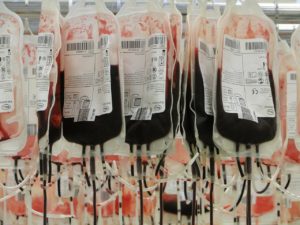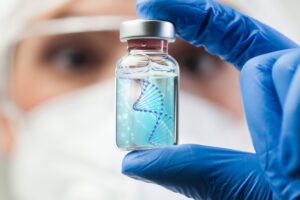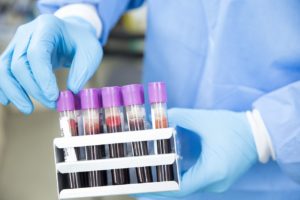Sickle Cell Disease (SCD)
What is sickle cell disease?
Sickle cell disease (SCD) includes a group of disorders that are characterized by malformed red blood cells that look like sickles. In sickle cell disease, deformed cells cause blockages and restricting blood flow as they get caught along the walls of blood vessels. The most common and severe form of this disease is sickle cell anemia.
Those of African American descent are at a higher risk of sickle cell disease. It is estimated that 70,000 to 100,000 people in the United States have sickle cell disease.
What are the symptoms of sickle cell disease?
Symptoms of sickle cell disease include pain crisis, swelling of the hands and feet, and symptoms associated with anemia like fatigue, jaundice, and delayed growth. Adults tend to constantly feel the effects of this disease, but children usually only experience them during pain crisis. Regardless of age, damage usually occurs to the organs that are affected by the blocked blood flow. The most commonly damaged organs are the brain, eyes, spleen, liver, kidneys, lungs, heart, skin, joints, and bones.
What causes sickle cell disease?
This disease is caused by a mutation in the gene responsible for producing hemoglobin, which carries oxygen throughout the body. This gene is inherited in an autosomal recessive pattern, meaning both parents must pass down a copy to their child.
How is sickle cell disease diagnosed?
Sickle cell disease can be diagnosed through a blood test. Newborns are screened for this disease in every state, which gives an early diagnosis.
If one knows that they have or carry the gene for SCD, they can also use the amniotic fluid to test for the disease before a baby is born. Genetic testing is also recommended for people who may carry the gene.
What are the treatments for sickle cell disease?
There is no complete cure for sickle cell disease. While some people qualify for bone marrow and blood transplants, not everyone is eligible for this procedure.
Other forms of treatment are symptomatic and meant to prolong life. They include antibiotics, pain relievers, blood transfusions, immunizations to prevent infections, and hydroxyurea which reduces complications.
Where can I find out more about sickle cell disease?
Sickle Cell Disease Articles

Thalassemia and Sickle Cell Patients in the UK Gain Access to Blood Transfusion Test to Reduce Side Effects

Guideline-Based Care Might Reduce Cerebrovascular Illness in Sickle Cell Disease

U.K. Health Authorities Grant Approval for a New Medicine using CRISPR Gene Editing to Treat Beta thalassemia and Sickle Cell

Teaching the Human Body to Cure Sickle Cell Disease


September is National Sickle Cell Awareness Month: Spreading Rare Disease Awareness

A Preview of Potentially Historic FDA Approvals for 2023







